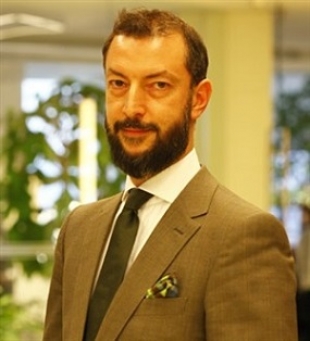
REFET G├ťRKAYNAK RECEIVES ERC GRANT
Prof. Refet G├╝rkaynak, chair of the Department of Economics, has been awarded a European Research Council (ERC) Consolidator Grant.
ERC funding is regarded as the most prestigious research funding in Europe and aims to stimulate scientific excellence in Europe by supporting the very best researchers in any field of investigation. Excellence is the sole criterion for selection; there are neither thematic priorities nor geographic quotas for funding. ERC competitions are open to top researchers from anywhere in the world, as long as the research project is carried out in Europe.
Prof. G├╝rkaynak will be using the five-year funding of 1,275,000 euros provided by the council for his research project, ÔÇťTheory and Empirics of Asymmetry.ÔÇŁ
In the project, Prof. G├╝rkaynak will first study empirically whether macroeconomic outcomes, financial market responses to macroeconomic news, and implementation and effectiveness of macroeconomic policies are symmetric or not. Are recessions and expansions mirror images of each other? Do the size of financial market responses to economic news depend on whether the news is good or bad, on whether it arrives during an expansion or a recession? Are macroeconomic policies equally effective when they are expansionary and when they are contractionary; when they are implemented during expansions and when they are implemented during recessions? Does policy makers themselves behave symmetrically during expansions and recessions? Broadly speaking, these empirical questions remain open in the economics literature. Based on the empirical findings, the second part of the project will undertake theoretical modeling to help understand what may bring about any asymmetries that are observed in the data.
Prof. G├╝rkaynakÔÇÖs grant is the sixth ERC grant that has been received by Bilkent University researchers since the start of the ERC funding program in 2007.
Bilkent News
ERC funding is regarded as the most prestigious research funding in Europe and aims to stimulate scientific excellence in Europe by supporting the very best researchers in any field of investigation. Excellence is the sole criterion for selection; there are neither thematic priorities nor geographic quotas for funding. ERC competitions are open to top researchers from anywhere in the world, as long as the research project is carried out in Europe.
Prof. G├╝rkaynak will be using the five-year funding of 1,275,000 euros provided by the council for his research project, ÔÇťTheory and Empirics of Asymmetry.ÔÇŁ
In the project, Prof. G├╝rkaynak will first study empirically whether macroeconomic outcomes, financial market responses to macroeconomic news, and implementation and effectiveness of macroeconomic policies are symmetric or not. Are recessions and expansions mirror images of each other? Do the size of financial market responses to economic news depend on whether the news is good or bad, on whether it arrives during an expansion or a recession? Are macroeconomic policies equally effective when they are expansionary and when they are contractionary; when they are implemented during expansions and when they are implemented during recessions? Does policy makers themselves behave symmetrically during expansions and recessions? Broadly speaking, these empirical questions remain open in the economics literature. Based on the empirical findings, the second part of the project will undertake theoretical modeling to help understand what may bring about any asymmetries that are observed in the data.
Prof. G├╝rkaynakÔÇÖs grant is the sixth ERC grant that has been received by Bilkent University researchers since the start of the ERC funding program in 2007.
Bilkent News



